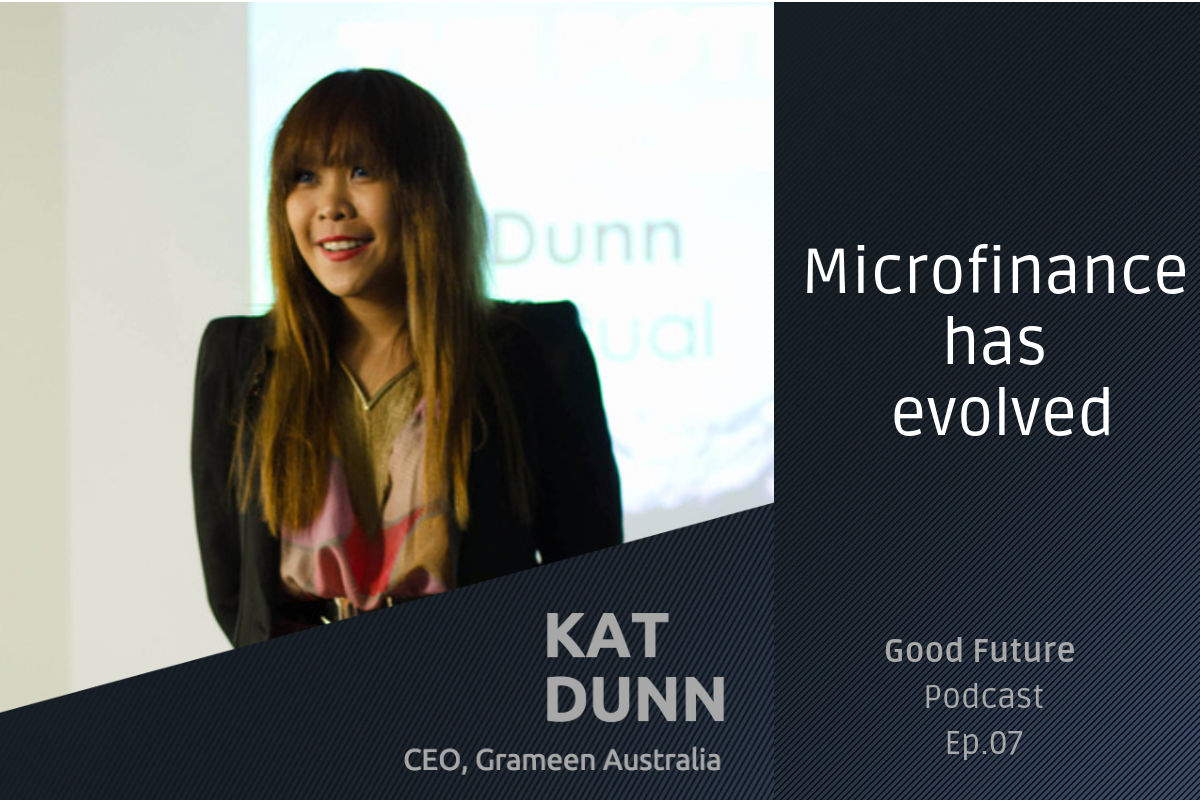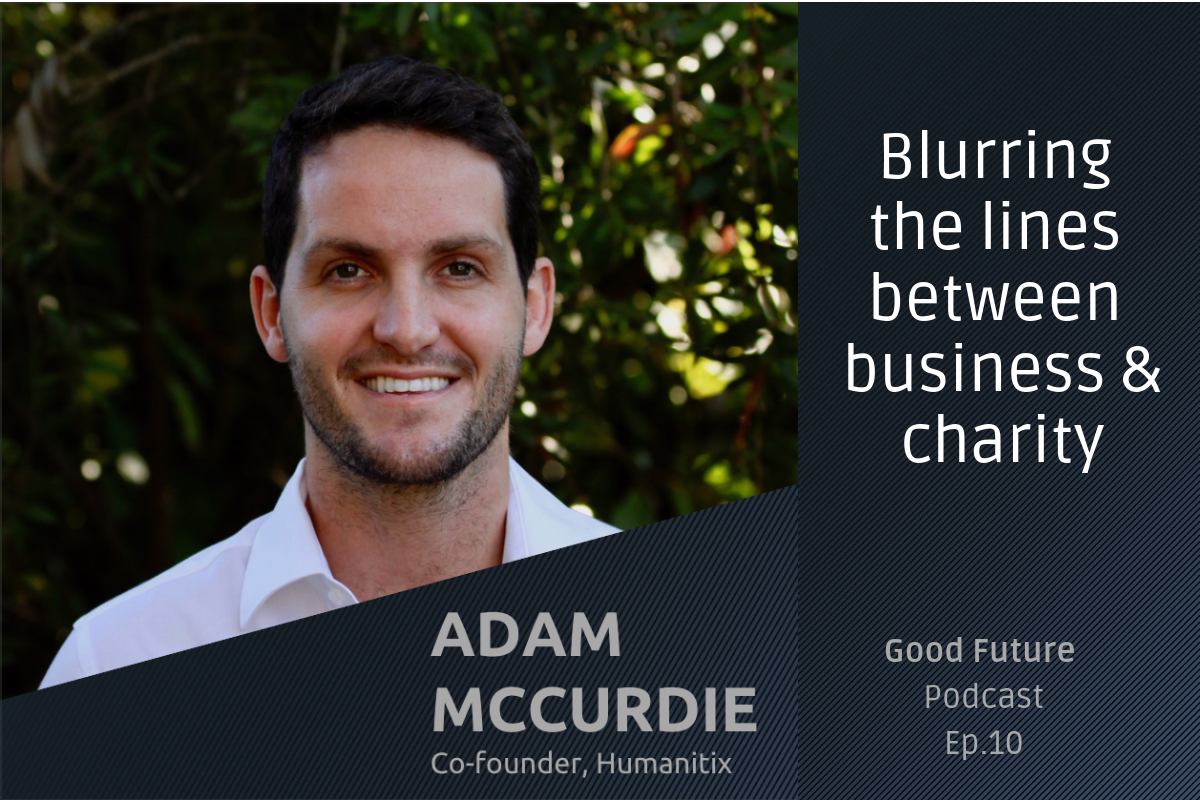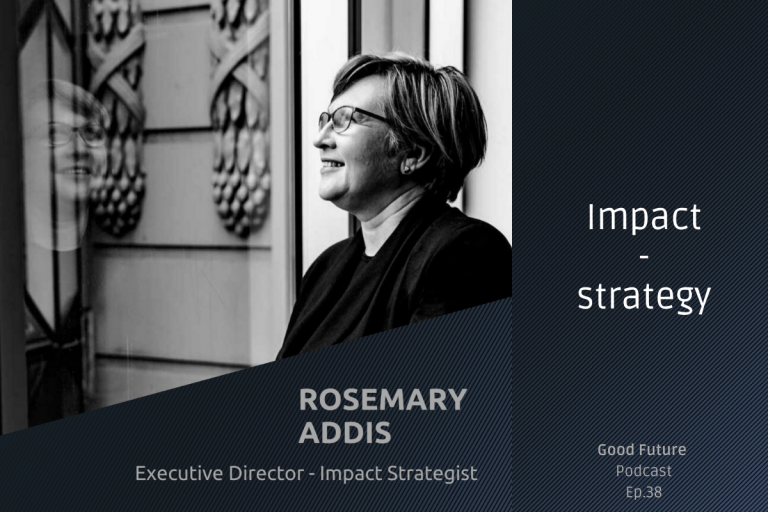The Good Future podcast came to life in 2018 and one of the most consistent questions I asked my guests is for a book recommendation.
Amid the rapid pace of change in innovative finance and the new-economy books quickly become dated, but that doesn’t mean there aren’t important themes that are timeless.
There are plenty of pressing questions about the purpose of capital (Jed Emerson got a few mentions for that one), but also the central philosophy of what place business has in our society.
Is it working for us, or are we working for it?
So here they are, a full list of all the recommendations from my first batch of guests, I can’t thank them enough for coming on board.
Plenty of holiday reads here (and plenty of time to catch up on some of the latest episodes!)
NB. All comments below are from the guests themselves.
Abhilash Mudalier
(You can find his episode here)
By Jed Emerson
“Jed asks us to take a step back, and to really understand the origins of our current economic system and to challenge the norms or conventions that we take for granted. And to really think about the ultimate purpose of capital in society.”
Conscious Capitalism: Liberating the heroic spirit of business
By John Mackey, Rajendra Sisodia
Winners Take All: The elite charade of changing the world
By Anand Giridharadas
“This book offers a criticism that most international development work doesn’t fundamentally challenge status quo systems. But rather, just makes marginal improvements while still preserving the privileges of those that are doing good, and allowing them to feel good about themselves.
The author includes impact investing amongst these approaches that he criticizes. Now we at the GIIN feel this is perhaps not quite as nuanced as it might want to be, and we’re not really interested in marginal or cosmetic improvements to the impact investing system, the vision we’ve outlined in the roadmap report is about transformational change in the purpose and functioning of the financial markets more broadly.”
Daniel Madhavan
(You can find his episode here)
By Jed Emerson
By Joel Solomon
By Kate Raworth
“Capitalism has had some fantastic outcomes in terms of poverty alleviation and economic growth. But it’s also produced a whole range of bad outcomes, including rising inequality and terrible environmental outcomes. So how do we take what’s good about capitalism, and go to version 2.0, where we can produce outcomes that are not just economically good for people, but also within the bounds of our natural environment, and that create and support the type of society we want to live in. Kate Raworth’s book Doughnut Economics is a really good framing for that.”
Anthea Smits
(You can find her episode here)
Ripples from the Zambezi – Passion, Entrepreneurship, and the Rebirth of Local Economies
By: Ernesto Sirolli
“It’s a bible within tdi, looking at development and market based approaches. It follows his journey, and the approach he’s developed, around finding local entrepreneurs and building local capacity. It’s a great read.”
Piet Klop
(You can find his episode here)
High Noon: twenty global issues and twenty years to solve them
By: Jean-Francois Rischard
“This book got me going, it was published in 2002, about twenty years ago. Well that twenty years is almost gone. It presented a case for urgency. I took it quite literally. We can’t just provide slow solutions to fast problems. This book, gave me a kick in the pants. You can’t just go small, you need to go big and quickly. I thought the book was interesting because it lays out not just the need but also the opportunity to do so. Not just the problems, but also the mechanism to solve them. You may say we haven’t really succeeded there, and a lot of stuff has happened since 2002.
Nonetheless, that is the one book I would recommend. There’s many variations on this theme, but it lays out very clearly what she be doing, why we should be doing it, and how we can succeed.”
Tom Dawkins
(You can find his episode here)
The Pollyanna Principles: Reinventing “Nonprofit Organizations” to Create the Future of Our World
By: Hildy Gottlieb
“It’s for anyone who’s thinking about the future. The underlying belief is that changing the questions that we ask has the power to change the future. And mostly, we ask really bad questions about the future.
And that’s why we have an NFP sector that is so incremental. And less focussed on transformational change and solving problems.”
The Answer to How is Yes: Stop Looking for Help in All the Wrong Places
By: Peter Block
“When raising an issue, often the very first question people ask is how? But asking how is a way to dampen down our ideas. Putting us back in our box.
Simon Sinek would suggest it’s better to start with why?”
Long Walk to Freedom: The Autobiography of Nelson Mandela
By: Nelson Mandela
“I love this book. His ability to withstand that incredible journey, and come out the other side with the grace, humility and forgiveness, is an incredible example to all of us.
One of the great humans of the 20th century.”
Sarah Pearson
(You can find her episode here)
The Game-Changer: How You Can Drive Revenue and Profit Growth with Innovation
By A.G. Lafley and Ram Charan
Kat Dunn
(You can listen to her episode here)
By Muhammad Yunus
“The book I would recommend people start with is Banker to the poor, the story of Grameen bank. That’s Professor Yunus’ first book and it talks about the Grameen bank story, the challenges that he faced when he came up against the traditional banking institutions in Jobra in Bangladesh. The principles of Grameen and how he came up with his models, and the failures he had early on, that got him thinking about tweaking the model.
It talks about his idea of turning banking on its feet. At the World Bank he was challenged because of his disrespect for the asset collateral model, he was told that he was ‘turning banking on its head’, but he said, ‘No, banking is currently on its head, I’m turning it on its feet.’”
Throwing Stones at the Google Bus – how growth became the enemy of prosperity
by Doug Rushkoff
“I really enjoy his thinking, because it challenges our notions, our common wisdom, that our system has to be based on infinite growth.
He really challenges our view of growth traditionally being the pathway to prosperity. But instead this concept of infinite growth, has compromised the idea of prosperity because it creates that wealth concentration and income inequality that Professor Yunus talks about. He challenges us to reframe what it means to be a truly prosperous country.”





